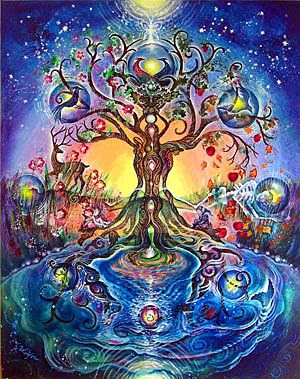Dear Integral Meditators,
This weeks article looks at one of the foundations of traditional mindfulness practice, the healthy ambitions that we can generate from it and the particular type of resilience that it helps us to develop.
In the spirit of appreciation and ambition,
Toby

You’ve Already Won! – Mindful Appreciation and Ambition
Biologically speaking you have already won the lottery. The human body is the Rolls Royce of mother nature’s evolutionary technology, with the most advanced tools for intelligence, development, pleasure and growth on the planet all built in. If you think about this regularly you start to get a feeling of appreciation simply for the opportunity to experience life in a human body.
Other conditions that make your life fortunate
The Buddha in his teachings on mindful appreciation of our human life also pointed out other aspects that make out life fortunate, quite a few or which you may have noted at least intellectually yourself:
- Being born in a time &/or place relatively free from war or famine
- Having complete intellectual & physical faculties
- Being free from intense or chronic hunger & thirst
- To have access to education, both secular & spiritual, & to have the freedom to study that which we choose
- To have the leisure to practice mindfulness & other methods of personal growth that give rise to the experience of inner wellbeing
If we have them all, we shouldn’t take any of them for granted!
Mindful appreciation and ambition
If you sit with a mindful recognition of any of the above points, almost inevitably you are going to start to feel good about your circumstances; whatever your relative situation you are a very lucky person. Staying with this feeling of being fortunate, of having a great opportunity by being alive and being human is a foundational object of mindfulness and meditation practice, a basic building block of your sense of personal happiness and wellbeing.
As well as giving rise to a sense of appreciation, this type of reflection can also give rise to a type of mindful ambition; a strong desire to make the most of the opportunity we have whilst it lasts.
Four types of mindful ambition
Traditionally speaking, there are four types of meaningful ambition we can cultivate by recognizing the good fortune of our human life:
- To secure the best quality of real happiness and wellbeing for ourselves and those in our circle of influence in this lifetime
- To work toward the happiness of future generations; to secure a better life for them
- To work toward the highest level of physical, psychological, and spiritual development and freedom that we are capable
- To cultivate the enlightenment experience (See my past article ‘Enlightened Imperfection’)
If you got out of bed each morning with this type of mindful appreciation and ambition in the front and centre of your mind; what would change in your life and the way in which you went about it?
Mindful appreciation and ambition as givers of resilience
One of the great things about this form of mindful appreciation and ambition is that it gives you a context for experiencing the rest of your challenges; many of the problems in your life cease to be so bothersome, because at the end of the day you know how fortunate you are. Not finding the man or woman of your dreams, not having an ideal career, not having the biggest house on the street or the exact life you want are all problems that can be dealt with; they are all relative and all manageable.
Live it up and be mindfully ambitious while it lasts!
Related article: How to Meditate on Gratitude
© Toby Ouvry 2015, you are welcome to use or share this article, but please cite Toby as the source and include reference to his website www.tobyouvry.com
Upcoming Courses at Integral Meditation Asia in May:
Friday 8th May, 7.30-9pm – Integral Meditation Session @ the Reiki Centre – Stillness, Energy, Positivity and Relaxation -A grounding in the basics of Integral Meditation
Saturday 16th May, 9.30am-12.30pm – Growing Your Mindful Freedom – The Essential Meditation of the Buddha: A Three Hour Meditation Workshop
Saturday 16th May, 2.30-5.30pm – Meditations for Activating, Healing and Awakening our Ancestral Karma
Wednesday 20th, 7.30-9.30pm – An Evening of Mindful Relationships: Improving Your Relationships and Social Skills Through Mindfulness – A two hour workshop
Friday 29th May 7.30-9.30pm – Integral Meditation Session @ the Reiki Centre – Travelling deeper into the present moment through integral meditation
Saturday 30th May, 2.30-5.30pm – Enlightened Flow: Finding the Ultimate Relaxation and Release from Stress










